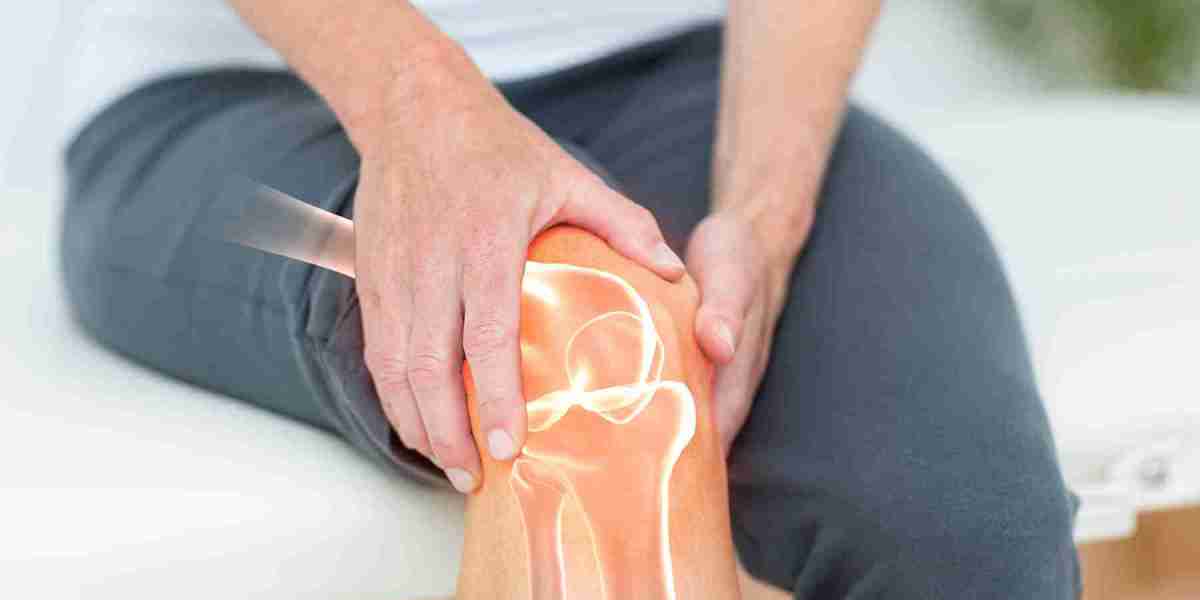Squished, injured, or inflamed sciatic nerves can cause knee and other discomfort. Treatment includes medications and lifestyle adjustments. The sciatic nerve runs from the low back to the knee. Researchers showed that sciatica is more common in 40-year-olds. Can sciatica cause knee pain? Sciatica affects people differently. It can start slowly or abruptly and cause mild to severe discomfort. Most sciatica cases are caused by a bloated or herniated lumbar disc. Some studies show that most sciatica patients recover in 4–6 weeks without other health issues.
Sciatica & Knee Pain Relationship
Sciatica occurs when the body's longest nerve, the sciatic nerve, is pinched or inflamed. Herniated discs, spine stenosis, and tight muscles can produce this soreness or compression. A damaged sciatic nerve can convey pain signals to the knee and other leg areas. It may be acute, searing, or a subtle discomfort. To treat these two illnesses, you must understand their relationship.
Sciatica affects millions of people worldwide. It can be debilitating and painful. When pinched or inflamed, the sciatic nerve can produce several symptoms, including knee discomfort, due to its location. A bulging disc is a major cause of sciatica. A bulging or torn disc can strain on the sciatic nerve, causing pain and other issues. This pressure might damage the knee and leg. Also, spinal stenosis (narrowing of the spinal canal) can push on the sciatic nerve and induce knee pain.
How Does Knee Sciatica Feel?
It covers a lot of ground. Common knee sciatica symptoms:
One or both knees and lower back hurt. This pain may hurt, burn, or spread. You may also feel cold or tingling. The back of the thigh, hamstring, or glute may cramp. Pain or weakening in the knee, like giving way
How to Relieve Knee Sciatica?
Try these activities right away to relieve sciatica and knee pain.
Move Often
Long stays might worsen sciatica. Especially when seated. Desk workers generally experience more sciatica pain while standing up. Move often to keep active. Get a drink of water, even if it's across the room. Moving about helps relieve knee discomfort and sciatic nerve irritation.
Light Exercise
Sciatica sufferers can relieve discomfort by swimming, stretching, or walking. Choose your happy move. If a movement relieves pain, do it more often.
Ice, Heat & Painkillers
To recover faster, use heat, ice, or medicines. In pain, we move in unnatural ways or don't move at all. Reduced sciatica pain and quick relief allow you to move more normally, helping you recover faster.
Sciatica & Knee Pain
Can sciatica cause knee pain? Yes, Common sciatica knee complaints include:
Warmth, intense pain, or dull aching in the front, side, or back of the knee
Knee weightlessness
Knee buckle or fail
Knee-stretching weakness
Sciatica may cause knee, buttock, thigh, calves, and foot pain. Sciatica discomfort usually affects one leg. This suggests bilateral knee discomfort is infrequent. Sciatica is usually caused by a lower back issue. These abnormalities may damage spinal discs, nerve roots, joints, or muscles.
L4 Nerve Injury
When the L4 spinal nerve root is compressed, sciatica can induce knee pain. Herniated discs or spinal stenosis in the lower back often strain on this nerve root. If the L4 nerve root is injured, your thigh and leg may hurt.
Cramped Hamstrings
Sciatica knee discomfort may be caused by tight hamstrings. Tight hamstrings make your lower back less stable, modify your lower spine's curve, and stress your spine-supporting joints. These alterations may cause lower back pain and stiffness. Pain may spread to the knees and legs.
Treatment for Sciatica
Best pain management in Dallas may recommend several sciatica treatments. Here are some:
Oral medications, such as NSAIDs
Steroid medications, painkillers, and anticonvulsants
People may need steroid doses
If a herniated disc, spinal epidural hematoma, abscess, or spine growth causes sciatica, surgery may be recommended.
When Should I See a Doctor?
Sciatica pain should be treated by a doctor, who can usually diagnose it. Before treatment, a doctor or nurse may perform a thorough physical and diagnostic assessment. After several weeks of home remedies and lifestyle adjustments, a person should contact a doctor if the pain persists. If the pain worsens or prevents routine activities, visit a knee pain doctor in Dallas. Without proper treatment, a swollen sciatic nerve can cause: Pain worsens with time, causing burning or prickling sensations, decreased leg strength, and nerve damage affecting bowel and bladder function.
How Does Sciatica Harm the Knees?
Sciatica causes more than back pain. The peroneal nerve, a sciatic nerve branch, can send pain and other symptoms down your leg and stop in your knee. This may injure your knee, like
any dull soreness, warmth, or severe knee pain.
Being unable to straighten your knee
Knees together
Trouble putting weight on the knee
How Should Knee Sciatica Sufferers Sleep?
Can sciatica cause knee pain and affect sleep cycle? Yes in some cases, therefore you should sleep wherever you feel good. It's crucial to sleep well because it speeds up healing. Sciatica sufferers may sleep better with an additional pillow. Side-sleepers should put it between their knees.








